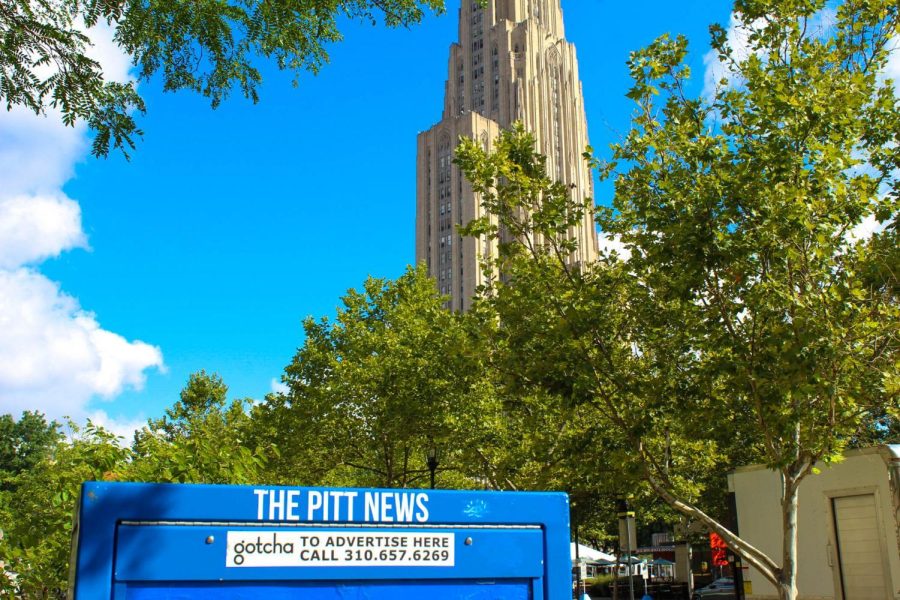Phone application closes the gap in long-distance relationships
January 12, 2015
Chris Wetherell is determined to take the heartache out of long-distance relationships.
As CEO and founder of Avocado Software, Inc., based in San Francisco, Wetherell is one of many who have created apps for couples in long-distance relationships.
According to a 2013 study published in the Journal of Communication, “Absence Makes the Communication Grow Fonder: Geographic Separation, Interpersonal Media, and Intimacy in Dating Relationships,” researchers found that 25 to 50 percent of college students are currently in a long distance relationship and up to 75 percent of students have dated a long-distance partner while attending college. The study also found, on average, couples in long-distance relationships rank their relationship stability, satisfaction and trust the same as or better than couples in geographically-close relationships. According to the former Center for the Study of Long- Distance Relationships, an average distance of 125 separated partners. Though some students appreciate the ability to use social media to talk to their partner, others use it sparingly.
Instead, students rely more on other technologies, like phone calls and Skype chats, to communicate with their significant others. Several new apps, however, such as Avocado, help to keep these couples’ relationships alive by acting as a couple’s private social media platform.
With Avocado, his company’s app, Wetherell wants to prevent social media from causing problems in relationships and said the app is a “sharing experience” for couples.
The app features chats, to-do lists and a photo gallery that couples can share with one another. The app was named Avocado, he said, because the fruit only grows in pairs.
Avocado competes with similar apps 2gether, LoveByte and Couple.
Wetherell said his favorite feature of Avocado is that it encourages closeness.
“You can hold the phone to your chest and it will vibrate and send a hug,” Wetherell said.
There are negatives and positives associated with using social media as a way of communicating in relationships, according to Meredith Guthrie, a communication and media lecturer at Pitt.
“With social media, it is easy to get mad and send off something mean easily,” Guthrie said, “[but] it does make it easier to stay in touch.”
Guthrie said texting can be a tricky way of communicating for couples.
“It’s hard to do tone of voice, [which] can potentially be a problem,” Guthrie said. “And, because there is the ability to always be in contact, that can become really annoying. You’ll get the ‘Why didn’t you text me?’”
Jess Graham, a junior nursing student, and her boyfriend have been dating for five years. They transitioned to a long-distance relationship in the fall of 2012 when they both left for college.
Graham and her boyfriend use computer technology more than social media, she said, to talk to each other every day.
“We Skype every night,” Graham said. “We talk on the phone, but we don’t text that much because we prefer actually talking.”
John Hlavinka, Graham’s boyfriend, said social media does not play a large role in their relationship.
“I have a Facebook, but I never use it. Neither of us have an Instagram,” Hlavinka said.
The only social media Graham and her boyfriend use to message each other is Snapchat.
“We have the daily Snapchat selfies that we send each other, like what my outfit is in the morning,” Graham said.
Graham said the distance has not put a strain on their relationship.
“It has actually helped us grow because, since we have that time apart, we can grow and then come back together,” Graham said. “Since we are young, we can find our own identity. It has never been stressful.”
Rachel Bender, a junior psychology student, said she and her boyfriend met on their first day at Pitt.
Though they are together throughout the school year, Bender said they are used to being apart during the summer months, as she lives in Pennsylvania, and he lives in New Jersey.
Since her boyfriend studied abroad in London during the fall semester, they were in a long-distance relationship from May until December.
While they were apart, Bender said they texted every day and Skyped once a week. She said the time difference made communicating challenging.
Bender said that being apart is not ideal, but they have grown as a couple because of it.
“Before we [had] been able to see each other all the time, and we didn’t really have any conflicts,” Bender said. “But since we didn’t have any conflicts, we didn’t grow.”
Bender said, overall, she likes being able to use social media and technology to communicate with her boyfriend.
“It opens up a more immediate level of communication,” Bender said. “Instead of more old-school writing a letter and opening it a week after the fact, it’s good to know ‘I’m thinking about you right now.’”







